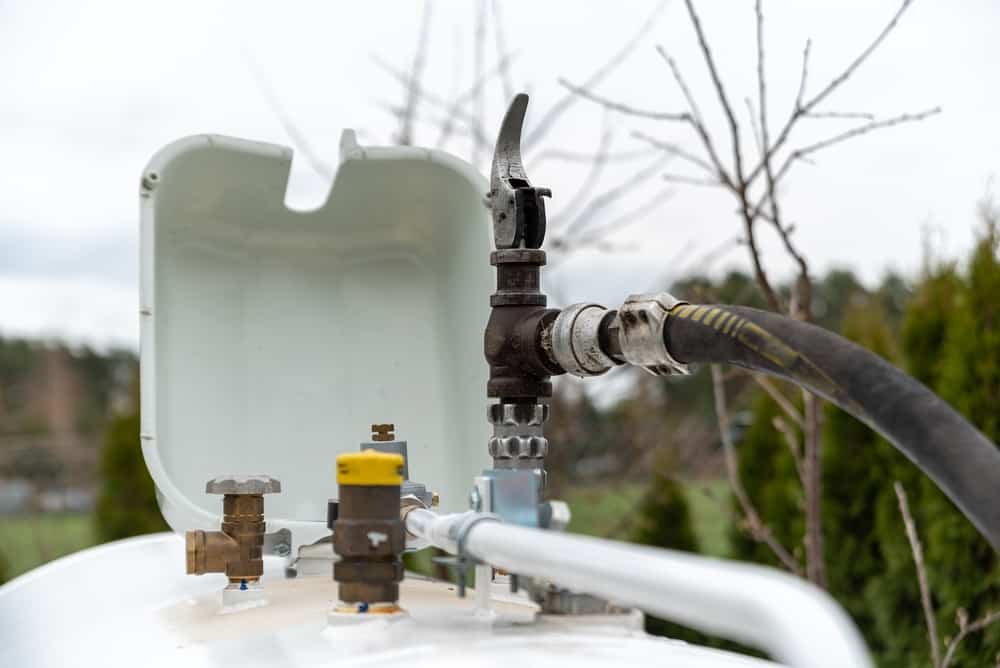Boilers are an essential component of domestic and commercial properties. They provide hot water for your central heating systems and your personal use. Boilers run on different fuels, including natural gas, LPG, electricity, and oil. LPG boilers are primarily used in UK regions with no natural gas supply. Around four million UK households have no access to the national grid; therefore, LPG boilers have become their primary choice as they are highly efficient. Please read our complete guide to learn all about LPG boilers.
What are LPG Boilers?
LPG stands for Liquified or liquid petroleum gas. It belongs to the hydrocarbon class of gasses. In other words, it is a product of carbon and hydrogen. The gas exists in the form of liquid and is often stored in cylinders which can be used in homes, vehicles, and other units. LPG is highly flammable and has high thermal efficiency, two reasons why it is used as a fuel gas. The most commonly used gasses in the form of LPG are butane and propane, which can be used for multiple purposes, including domestic and commercial boilers. LPG boilers are similar to natural gas boilers, and the only difference is that you get LPG from storage cylinders/tanks instead of the national grid. Natural gas boilers can also be used as LPG boilers with the help of conversion kits.
Are LPG Boilers Available in All Types?
Like natural gas boilers, LPG boilers can be either combi boilers, system boilers, or conventional boilers. Your existing Combi boilers, which provide water supply for personal hygiene and central heating systems, can be easily converted to run on LPG. All gas boilers, including natural gas and LPG, should be installed by gas-safe registered engineers to ensure safety.
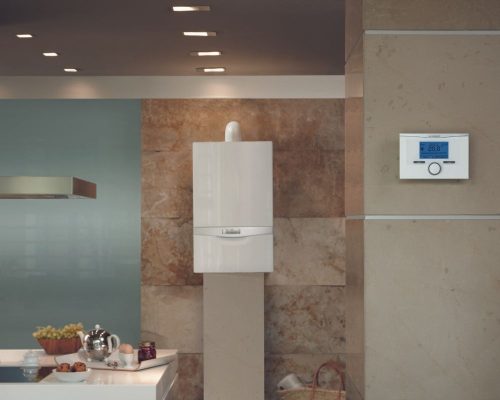
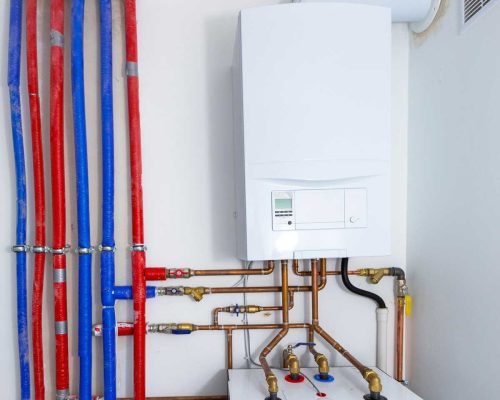
Are LPG Containers Safe?
As we mentioned, LPG is a highly flammable gas. It should be stored in purpose-built containers or cylinders, which ensure that there is no leakage of LPG. Care must be taken when storing LPG and when installing LPG containers. Installing them in your outdoor space far from heat sources is best to avoid hazards. They should be fitted on higher ground so children cannot touch them. The installation location should have adequate ventilation to prevent exposure to leaked LPG.
Are LPG Boilers any Good?
If you are connected to the national grid, a natural gas boiler should be your preferred choice as they are more efficient, and you get a regular supply of natural gas. However, LPG boilers become the preferred choice when not connected to the national grid. Electric and oil boilers are also used but have a higher running cost than LPG boilers. LPG is a highly dense gas and can be easily stored in small places. LPG has high thermal efficiency and produces fewer carbon gasses than other fuels. LPG boilers are less noisy than natural gas boilers.
What are the Disadvantages of LPG Boilers?
As with all gas boilers, you must be cautious about LPG boilers. Security devices such as carbon monoxide alarms must be installed to ensure safety. Storage tanks must be monitored to ensure that you have an adequate level of LPG for firing your boiler.
What is the Cost of LPG Boilers?
Depending on the size and brand, LPG boilers can cost anywhere from £400 to £2500. This estimate does not include installation costs which will consist of labour charges and the price of the LPG storage tank. Various brands offer LPG boilers in the market in all three types and with different volumes, so getting a suitable size LPG boiler should not be a problem. You must, however, identify your hot water requirement, which should incorporate the water required by your central heating system and your hygienic requirements. Installing a boiler that can provide a much larger volume than your water requirement will increase your running cost while installing a smaller one will not meet your need.
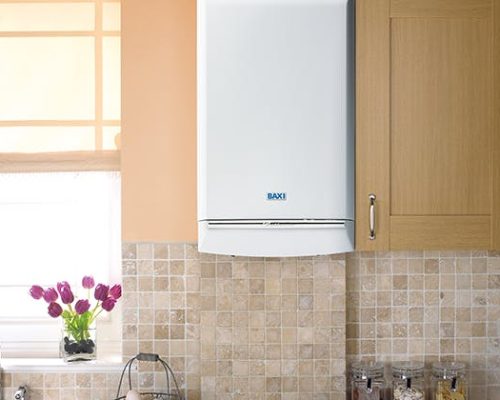
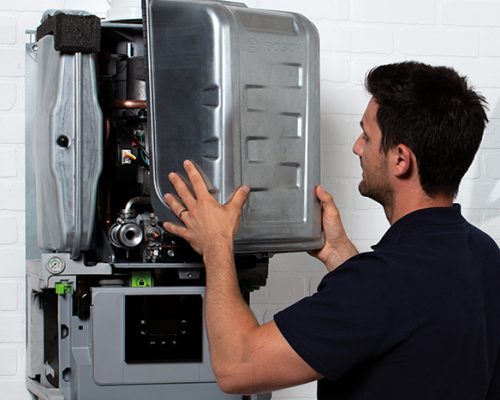
Choosing an LPG Storage Tank
-
What Should Be the Storage Size?
As a rough estimate, an LPG tank with a capacity of storing 1,410 litres of LPG can conveniently meet the requirements of an average UK home. However, we strongly recommend seeking an expert opinion before you buy any storage tank. A gas-safe engineer should ideally visit your home, analyze your water requirement, and then suggest a suitable size LPG container.
-
What Should Be the Storage Location?
The best location to install your storage tank is outdoors and above ground level. You will have to get a concrete base constructed and some trench work to install pipework connecting your property to the tank. A gas-safe engineer should ideally be aware of all regulations regarding the installation locations of boilers. For instance, it has to be ensured that the LPG delivery vehicle can easily access the tank. There should be sufficient clearance between the tank and other structures. They should be installed in open spaces.
Benefits of LPG Boilers
- LPG boilers are less expensive than oil boilers. The running cost is also low considering the thermal efficiency and hot water supply.
- Although LPG is a fossil fuel, it is considered cleaner and safer than oil as its carbon emissions are 15 to 20% less.
- Modern LPG boilers have an efficiency greater than 90 %. This implies that if you spend £1 on heating your home, you are wasting only 10p.
- LPG boilers are much smaller than oil boilers and create much less noise.
- The choice range of LPG boilers is vast. Brands like Vaillant, Baxi, Ideal, and Worcester Bosch offer several sizes and capacities at different prices. Some provide convertible natural gas LPG boilers that can run on LPG and natural gas.
Precautions for LPG Boilers
Gas boilers are highly efficient, but their installation must be accompanied by security devices. Regular inspections and checks should be carried out to ensure that there are no leakages.
- To ensure you don’t run out of LPG supply, you must keep an eye on your storage tank.
- It should be ensured that your storage tank is of adequate quality. Regular inspection should be carried out to check for signs of leakage and corrosion.
- LPG is highly flammable, and all safety measures should be taken to ensure
- It is best to buy LPG from known and recognized companies that offer several years’ warranties and repair/maintenance services.
- Only gas-safe registered engineers are authorized to provide gas boilers installation, repair, and replacement.
How to Keep your LPG Boiler in Perfect Condition?
LPG boilers burn LPG to heat water. They are sturdy pieces of equipment and can last a lifetime with little care. After you have installed an LPG boiler on your property, you should take certain steps to ensure that your boiler performs efficiently and safely.
-
Annual Servicing
Many boiler companies will provide free annual servicing for the first year after installation. Yearly servicing can keep your boiler fit and point out potential problems. Servicing will also minimize boiler issues and save your repair costs. A gas-safe registered engineer and an authorized engineer by the manufacturer can carry out annual servicing. Some manufacturers provide warranties that are only valid if you get your boiler services from their authorized representatives. A full yearly service will eliminate all dirt and blockages from your boilers and enhance their lifespan.
-
Repairs & Maintenance
Pay attention to any issue you are facing with your LPG boiler, even if it seems like a minor leakage. Never ignore a gas leakage, as LPG will catch fire instantly if it comes into contact with an open flame. Gas leakages should be dealt with right away. Turn off the gas supply valve and your boiler if you suspect a leakage. Get in touch with a gas-safe registered engineer right away for immediate repairs.

